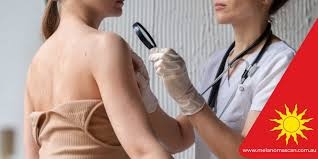For many Australians, enjoying the sun is part of daily life. But with Brisbane and other regions recording some of the world’s highest skin cancer rates, taking skin health seriously is essential. A visit to a skin cancer clinic isn’t just about peace of mind—it’s about catching problems early, when treatment is simpler and outcomes are far better.
Understanding the Importance of Early Detection
Skin cancer doesn’t always start with dramatic symptoms. Often, it begins as a small change—a mole that looks slightly different, a spot that lingers too long, or a patch of skin that feels itchy. Left unnoticed, these signs can turn into serious conditions. Detecting skin cancer early means doctors can treat it quickly, usually with less invasive procedures and a higher chance of full recovery.
How Clinics Support Early Detection
Expert Eyes on Your Skin
While self-checks are important, they can’t replace a professional examination. Specialists at skin cancer clinics are trained to notice subtle warning signs that most people miss. With tools like dermatoscopes, they can look beneath the skin’s surface for hidden irregularities.
Record-Keeping for Accuracy
Many clinics keep detailed records and photographs of your skin. By comparing new results with past check-ups, doctors can identify changes that might otherwise go unnoticed.
Quick Steps if Something Looks Wrong
If a suspicious spot is found, clinics can arrange a biopsy on the spot or refer you for further care. This fast response can be life-saving.
When Should You Book an Appointment?
There are a few situations where visiting a clinic should be a priority:
- A mole that grows, changes colour, or develops irregular edges.
- A sore or patch of skin that refuses to heal.
- Unusual growths that look shiny, scaly, or raised.
- Any mole or spot that becomes painful, itchy, or bleeds.
Even if you don’t notice anything unusual, experts recommend a routine skin check at least once a year.
Higher-Risk Groups Need Extra Care
Some people are more vulnerable to skin cancer and should be extra vigilant:
- Those with fair or freckled skin.
- People with a strong family history of skin cancer.
- Outdoor workers, athletes, and surfers are exposed to long hours of sunlight.
- Anyone who has had frequent or severe sunburns.
If you fall into one of these groups, more frequent check-ups—every 6–12 months—are often advised.
What to Expect at a Skin Check
A typical appointment is simple and usually takes less than half an hour. The doctor will examine your skin from head to toe, sometimes using magnification to look closer at specific spots. Photos may be taken for future comparison. If a mole or lesion looks unusual, a small sample may be tested.
Protecting Yourself Every Day
While clinics are vital for early detection, prevention starts at home:
- Apply SPF 30+ sunscreen daily, even on cloudy days.
- Wear hats, sunglasses, and protective clothing.
- Avoid peak UV hours between late morning and mid-afternoon.
- Conduct monthly self-checks in front of a mirror.
These steps, combined with professional care, provide the strongest protection.
read more : https://celebvalues.com/
Final Thoughts
A skin cancer clinic is more than a place for treatment—it’s a partner in prevention and early detection. By scheduling regular checks and acting quickly when something looks suspicious, you can stay ahead of skin cancer risks. With expert guidance and proactive habits, you’ll be better equipped to enjoy the outdoors while protecting your health for the long term.

